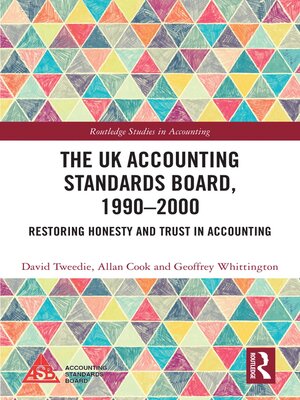The UK Accounting Standards Board, 1990-2000
ebook ∣ Restoring Honesty and Trust in Accounting · Routledge Studies in Accounting
By David Tweedie

Sign up to save your library
With an OverDrive account, you can save your favorite libraries for at-a-glance information about availability. Find out more about OverDrive accounts.
Find this title in Libby, the library reading app by OverDrive.



Search for a digital library with this title
Title found at these libraries:
| Library Name | Distance |
|---|---|
| Loading... |
In the late 1980s, financial accounting in Britain was in disarray. 'Creative' accounting was rife. The authority of the industry's standard-setters had been drastically compromised when their rules for inflation accounting were first ignored by many firms and then abandoned. There were calls for government to replace the accountants' self-regulation with a tough regulatory regime close to the American model. Also, rapid change in the financial industry was generating complex new financial schemes for which existing accounting standards were inadequate. This book tells the story of the next decade: the problems the standard-setters faced, both technical and political, the resistance they met, the solutions they developed, and the durability of their work. Innovations they developed have become part of global accounting standards.
The story is told in the words of three board members, all of whom had spent their careers in accounting, one as a senior technical partner of a Big 4 audit firm, one as an executive in major multinational businesses, one as a university professor: respectively, the Chairman, Sir David Tweedie; the Technical Director, Allan Cook; and the academic board member, Professor Geoffrey Whittington. The medium is for the most part conversation, with the standard-setters questioned by Cambridge Professor Geoff Meeks, recorded over three years producing a more vivid picture of motivations and events. Also, in this technically demanding subject, it has the advantage of a simpler, more informal, and engaging conversational style and language.
The book will appeal not just to accountants interested in the origins of the rules they are following and students learning why those rules were adopted, but also to anyone interested in how, in spheres beyond accounting, to harness the expertise and support of business regulatees without suffering regulatory capture.







